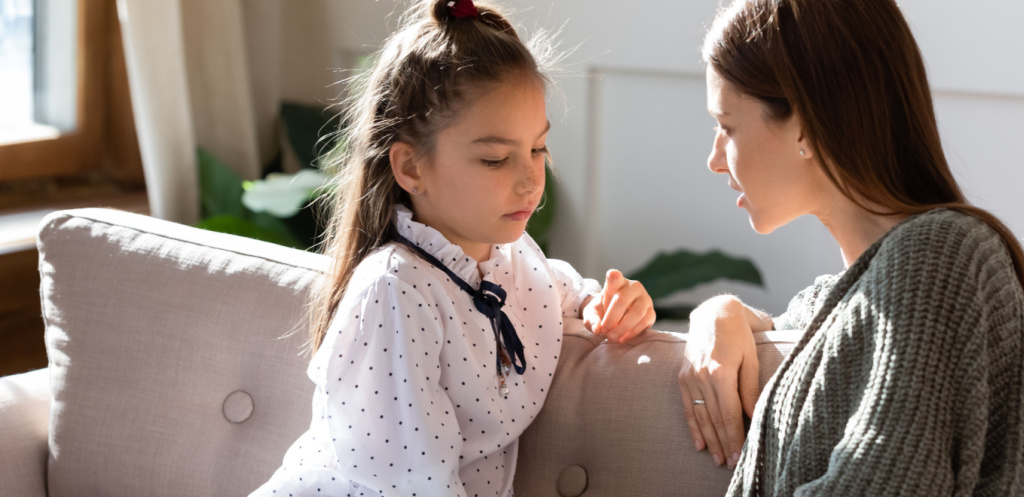In times of conflict, Mumz often find themselves facing a daunting challenge: explaining the complexities of conflicts to their children. It’s a conversation laden with emotions and difficult questions, but it’s also an opportunity for growth, understanding, and connection. In this guide, we’ll navigate this sensitive topic, offering you some age-appropriate approaches to help engage in open conversations about war with your children.
How to Talk to Children About Conflict
For Younger Children (Ages 3-5)
Primary aged children, with their budding curiosity, may not fully grasp the concept of war. However, they are sensitive to changes in their environment. If they’re not aware of the circumstances, it may be best to shield them entirely from what is happening in the region and to continue your daily lives as normally as possible.
To the little ones who have heard details about the events, we suggest you offer gentle reassurance. You might say, “Sometimes grown-ups have disagreements, just like when you and your friends sometimes don’t agree on games to play. We have to find a way to have fun together and be kind, many people are working very hard to help everyone play together nicely.”
For School-Aged Children (Ages 6-12)
School-aged children have a deeper capacity for understanding, but it’s crucial to provide information in a way that doesn’t overwhelm them. Begin by asking what they’ve heard or learned, and address any misconceptions. Emphasize safety measures, explaining that there are special people who work very hard to keep communities safe and that they are also safe. Remind them that it’s okay to feel a little scared, but also assure them that you’re there to protect and support them. This is a good opportunity to begin open conversations about feelings and what they might look like. You can use activities such as arts and crafts, journaling and story telling to help.
For Teenagers (Ages 13 and Up)
Teenagers are in a unique position to engage in more in-depth discussions about current events and geopolitical factors. Encourage them to think critically and form their own opinions. Provide resources for them to explore, and let them know that their thoughts and feelings are valid. Create a safe space for them to express themselves, and let them lead the conversation. Remember, they’re not just learning from you, but also from their own experiences and research. You may want to include them in actively participating in volunteer work working to support those in need with a hands-on approach.
Ultimately, children of all ages will have questions about war. Encourage them to ask, and answer truthfully to the best of your ability. If you don’t know an answer, it’s okay to say so. Use it as an opportunity to learn together. Remind them that it’s normal to feel a little scared or confused, but that talking about it helps everyone feel better.
Let your children know that it’s perfectly okay to feel a range of emotions. Provide outlets for them to express themselves, whether it’s through drawing, writing, or imaginative play. Reassure them that their feelings are valid and that it’s healthy to talk about them.







Thank you for building a website that embodies professional integrity and educational value. The careful balance between design and information delivery ensures a meaningful experience for visitors. Your ongoing commitment to quality is genuinely respected.
Thank you for sharing this amazing website with the public. The articles are detailed, practical, and inspiring. The content is well-structured, the design is appealing, and navigation is easy. Your dedication to maintaining such a helpful resource is greatly appreciated by all visitors.
Gold99slot, yeah? Name screams classic slots action! Hoping their offers stand apart. If you’re a slot enthusiast, this could be your jam. Give gold99slot a spin and see if you strike gold.
Goal11casinologin, now that sounds like a winner! Let’s score some goals and have some fun! C’mon, luck be a lady tonight! goal11casinologin
Your point of view caught my eye and was very interesting. Thanks. I have a question for you.
I don’t think the title of your article matches the content lol. Just kidding, mainly because I had some doubts after reading the article.
This is really helpful. This reminds me of a similar experience I had. This topic is something I’m really passionate about. Related resource: betao bet — highly recommend it. Looking forward to your next post!
Thank you for providing such informative content. The article is easy to read and well structured, helping readers understand the topic better. I appreciate the effort behind this helpful post.
I appreciate the useful information provided here. The article is clearly written and informative. Thank you for sharing content that supports learning and understanding.